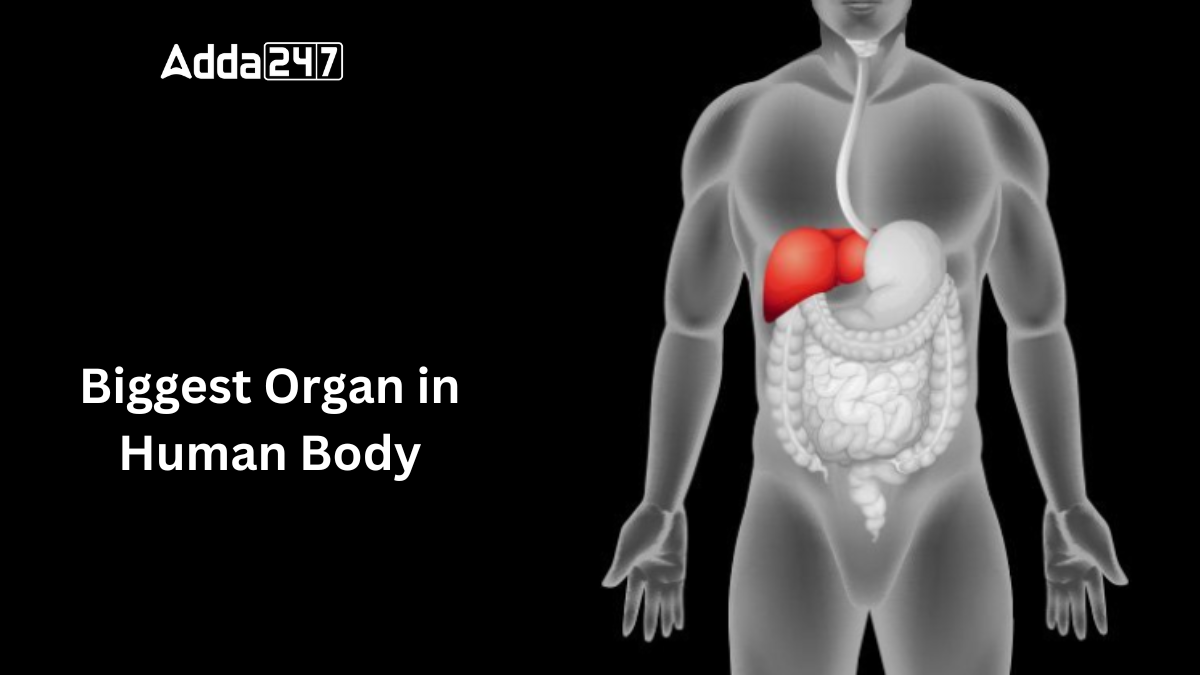The human body is a complex and meticulously organized system comprising approximately 70 to 80 distinct elements known as organs. These organs do not function in isolation; instead, they collaborate and interact seamlessly to form various organ systems. These systems collectively constitute the comprehensive functional framework of the human body. The remarkable coordination among organs and systems is essential for the overall health and functioning of the body.
What is an organ?
An organ is like a team of special workers, called tissues, that all do a specific job. Just like how different people in a team have different roles, these tissues work together to get a particular job done in our body.
Which is the Biggest organ in the Human Body?
Based on the weight and length of the body organ, the biggest organ is Skin which is approximately 2 mm thick and weighs around 10895.10 grams.
Know About Skin, Largest Organ of Human Body in Brief
Average weight: 10,886 grams
Skin is the largest organ of our body. The average weight of skin in the body is about 10,886 grams which varies according to the size and weight of human beings. Human skin is made up of different ectodermic tissues and it protects all the inner body organs like liver, glands, stomach, heart etc.
Functions of the Largest Organ of Human Body, Skin
Here are some of the functions performed by the Skin:
- Protection: Acts as a barrier against pathogens, UV radiations, chemicals and physical injury.
- Temperature Regulation: The Skin helps regulate body temperature through sweating and blood vessel control.
- Sensation: Contains receptors for touch, pressure, temperature and pain perception.
- Excretion: Skin eliminates minor waste products and toxins through sweat.
- Absorption: The Skin can absorb small molecules such as medications.
- Vitamin D Synthesis: Converts sunlight into vitamin D for bone health.
- Social and Psychological: Influences appearance, self-esteem and emotional expressions.
Top-10 Largest Organs in Human Body
The human body is made up of various organs that perform essential functions for survival. Among them, some are quite large, each playing a unique role. Here’s a look at the top 10 largest organs in the human body, listed by size and importance.
Let us know the names of the largest organs of the human body:
- Skin
- The Liver
- The Brain
- Lungs
- The Heart
- Kidneys
- Spleen
- Pancreas
- Thyroid
- Prostate Gland
Human Body’s Second Largest Organ – The Liver
Average weight: 1,560 grams
Liver is the second largest organ in the human body. It’s average weight in a normal human body is 1,560 grams. The liver receives blood full of digested food from the gut. It stores some foods and delivers the rest to the other cells through blood.
Function:
Some of the functions performed by the liver are as follows:
- Cleans and filters blood, removing waste and toxins.
- Produces bile to help in digestion.
- Stores and releases energy by managing sugar levels.
- Makes protein for blood clotting and new blood cell production.
- Regulated chemical balance in the body.
- Detoxifies drugs and harmful substances.
Third Biggest Organ in Human Body – The Brain
Average weight: 1,263 grams
Brain is the third largest organ in the human body. Its average weight in a normal human body is 1,263 grams. The brain controls and governs the actions of all the body parts. There are about 100 billion cells in human brain enabling 100 trillion nerve connections with nerve cells for messaging.
Function:
Some of the functions performed by the brain are as follows:
- Controls body movements, thoughts and emotions.
- Processes sensory information like sight, sound and touch.
- Stores and retrieves memories.
- Manages bodily functions
- Coordinates and control various body systems.
- Enables learning, problem-solving and decision-making.
- Regulates hormones and emotions.




 7 Countries that Celebrate Holi Like Ind...
7 Countries that Celebrate Holi Like Ind...
 Which is the Longest River of Afghanista...
Which is the Longest River of Afghanista...
 Which is the Highest Mountain of Afghani...
Which is the Highest Mountain of Afghani...








